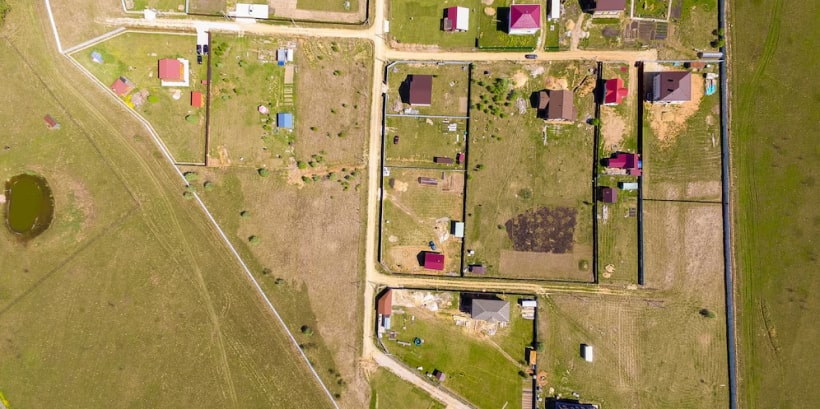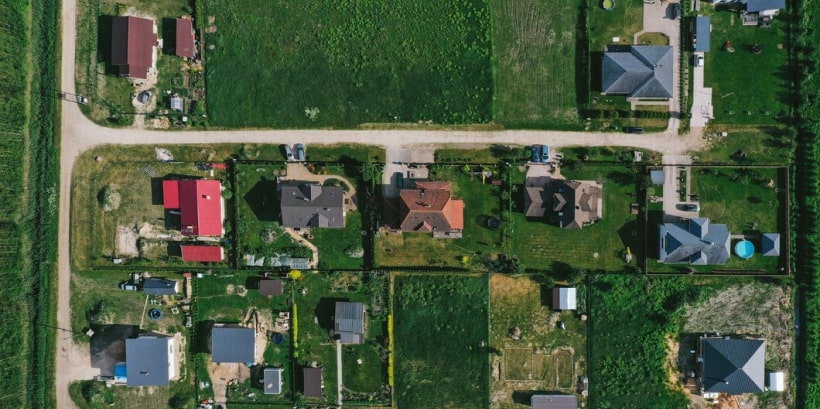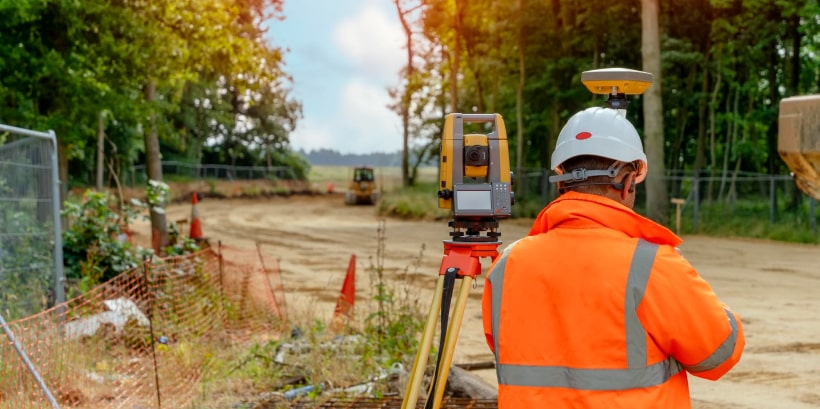Many people are confused by the idea of how to invest in land. However, this untapped investment realm can result in substantial returns from parking lots to agricultural land investments. Despite all its benefits, many people find purchasing land a big deal, as it calls for thorough research of various factors such as geographical potential, owner records, etc.
If you are wondering if land is a better investment than other available options, the answer is yes. Though the acquisition of land can often be confusing and burdensome initially, it reaps long-term benefits.
However, to ensure a successful investment in land, you must adopt a precise strategy combining the appropriate level of preparation, investigation, and diligence.
If you are looking for tips on investing in land for beginners, this roadmap will tell you what to look for, what to avoid, where to start, and more. Therefore, begin your quest to turn your land ownership dream into reality with this land investment guide.
Table of Contents
Set Investment Targets
This is the very first step for you to consider while proceeding with how to invest in land lots.
To consider how to invest money in land, assessing your financial state is pivotal. It helps to ensure you can afford to acquire land, which is the primary step in raw land investment By creating a budget and setting an objective to put aside a certain amount weekly, fortnightly, or monthly, you’ll get your financial affairs in order.
Furthermore, the expected costs of buying the land must also be calculated. Additionally, you should take into account elements for developing the land in the land map. These include licenses, real estate agency charges, the price of acquiring the land itself, the cost of making the appropriate modifications to the land, etc.
To find out how much you can afford to borrow, you must talk to your lender as soon as possible. This will give you a broad idea of how much money to save to invest in land and make a profit, how much money to borrow, and how long this procedure will take
Assess Risk Tolerance
This is another important point to consider to understand. Is land a good investment? Yes, it is. But this does not signify that investment on land will be risk-free. The degree of loss you are willing to take while investing in land must be considered. This investment decision is referred to as risk tolerance and is important if you are wondering, “How to become a land investor?”.
Understanding your risk appetite for land for sale investment, will aid in portfolio planning and influence your investment choices. Thus, it is a crucial part of every land investment guide. To evaluate your risk tolerance level, you must consider various variables such as your portfolio size, a timeline for closing the deal, and a higher risk appetite.
Discover the Best Market
Researching the real estate industry is the subsequent step to planning how to invest in land. Understanding that not all properties will satisfy your requirements. Also, while researching how to become a land investor, noting that certain properties will offer you greater prospects than others is crucial.
During land-for-sale investment, the advantages and hazards of engaging in a particular market can be determined by conducting comprehensive market research.
Focusing heavily on new markets and locations where advancements are unfolding will be a great choice. This is because these markets have a strong likelihood of gaining popularity among landlords and homeowners.
Choose the Right Land Type
Choosing the perfect land type to align with your investment goals is a necessity when considering how to invest in land.
Several new investors are familiar with just a few kinds of land deals, such as those involving farmland, unexplored residential plots, and rural real estate. Real estate investors can, nonetheless, purchase a larger range of land types and generate income in inventive manners.
Depending on the geographic location, terrain, climate, and employment situation, unoccupied land may be put to a wide range of applications while researching land for sale.
A important question to ask here is – Is land an asset? Yes, it is. You can thus unearth some surprising ways to engage your land by investigating all the different sorts of land that are accessible in your region.
Important Factors to Consider
There are a few important factors that you should keep in mind while considering how to invest in land and make money.
On this note, land acquisition as an investment is a smart option. However, individuals who are just beginning the process of land for sale investment might frequently be enticed by low prices or offers without comprehending which specific variables to take into account.
In this essence, some investments in lands are frequently marketed as “can’t afford to lose chances”. Whereas, in reality, this is too appealing to be true and is primarily successful at luring in inexperienced investors. Despite purchasing at an attractive price, this will be a major setback between you and the benefits of owning land. Therefore, to go ahead with a real estate investment with expert insight, you need to follow a comprehensive land investor guide.
Therefore, you must conduct extensive research on types of land investments before committing to any purchase. Investments in land are likely to appreciate over time. If you ask, Does land always increase in value? the answer will be mostly yes, but in some cases, it depreciates too.
Therefore, land investors must conduct thorough research to choose a profitable piece of land. Among various land investment tips, here are some points you must be sure to research to decide how to invest in land.
Size:
There’s a good probability that you already have an idea in mind when you begin searching for how to buy land online. The purchased land can fulfill diverse investment goals, which include building your dream home, an exclusive campsite, a ranch, etc.
It is therefore important to know the size of land you’ll require. The terrain, slopes, and elevation of the property are all included in this analysis for investment in land for sale. With this information, you’ll be able to see the whole picture regarding how to become a land investor. To go ahead with this plan, you must assess the situation and decide whether the land suits your needs or not. This shall help you make an informed decision on how to invest money in land and earn long-term ROI.
Location:
As the phrase goes, location is the key in real estate while opting for how to invest in land lots. Even though you could relish living fully on the city outskirts or at far-off locations, keep in mind that buying land still counts as a form of investment.
Prospective buyers could hesitate if it takes longer than an hour to get to the gas stations and supermarkets. Thus, it is important to research the zone where you intend to purchase land for sale. Furthermore, you must also consider that amenities like schools, shops, roadways, and rescue services should be available at a convenient distance while purchasing the land.
Taxes:
This is an important parameter to consider for land investing for beginners. Some people might wonder—if owning land is a tax write-off, the answer to which is no. However, owning land has comparatively fewer costs compared to other property investments.
The yearly property tax is the sole recurring expenditure you will incur after acquiring the land, besides the mortgage payment. Hence, before actually finalizing the property, you must be aware of the taxable amount.
Land Records:
This is another crucial point that you must note while studying how to buy land for investment. Likely, unoccupied land may not have previously undergone a legal inspection. In that regard, investigating the ownership record could be a little more challenging when purchasing land.
On the other hand, a property that already has a facility must have undergone the title search, and so any ownership disputes have likely been settled. So, it is crucial to conduct a comprehensive title investigation when thinking about land investing.
Zoning Issues:
Is your picture-perfect property truly designated for commercial, industrial, residential, or agricultural usage? This is a must-ask question while considering how to invest in land.
To determine whether it is even feasible to build a structure on a shortlisted land, consider checking with your state zoning rules. Moreover, you can also visit the website of your local zoning authority to find out about local laws and any major renovations that might influence your purchase.
What you can accomplish with your raw land investment is significantly impacted by zoning. This may also have an expensive effect on you. The process of purchasing land must therefore include checking for potential zoning modifications.
Soil Depth:
Researching the soil depth and quality is also a crucial step when considering how to buy land for investment.
The property you’re considering might be magnificent, but can you build on it or use it for the goals you have set already given its geography and topography?
You may find out about the soil’s richness with a soil test, and you can also assess the terrain’s roughness and unevenness. To obtain a permit to construct any form of structure on the land, you will have to conduct a soil test. By conducting this research for land investing for beginners in advance, you can avoid spending time and money on ineffective purchases.
Utilities:
Choosing the right utilities is also necessary to delve into investing in land for beginners.
Your chosen land might not have access to city sewage facilities, cable television, power, or water. Installing these utilities can be an expensive endeavor too. Thus, leading your investment plan to overshoot the existing budget.
Furthermore, to determine whether you will need to spend time and money constructing your septic system, water well, or power access, you’ll need to perform thorough research beforehand. Take into account the following factors while you look for land to strategize a land investment guide.
- Water: You might need to set up a well and perhaps another off-grid water system if there isn’t a municipal water source close by. Also, another option that can be expensive and cumbersome is trucking in water.
- Sewer: Before beginning construction, a septic tank must be erected if there is no municipal sewer connection available. You probably won’t be able to obtain a permit to construct any structure on such land if you aren’t permitted to construct a septic tank.
- Electricity: Electricity is one of the most important utilities to use if it is close by. If there isn’t already a line, inquire with your regional electricity provider about an estimated cost. Installing a solar-powered system is another alternative. Additionally, find out if there is cell service and internet access on the property.
- Road Access: Another important point in how to invest in land, you must note is that you must have easy access to the land you purchase. On this note, you must determine whether the major roads leading to your property are situated on another person’s property.If so, you’ll need to secure a legal easement before using them. A price and a contract to split the expense of road maintenance may be required to obtain legal permission to use a road.
- Easement: It’s crucial to research conservation easements while studying how to invest in land. A limitation imposed on real estate to safeguard its resources is known as a conservation easement. It is a contract that may restrict the landowner’s ability to cultivate and harvest on particular patches of land.Knowing whether your land is permanently barred from being used for such activities is important if you intend to utilize it for such pursuits.
Property Survey and Plat Maps
This is another important point you must keep in mind while planning an investment in land for sale.
Land assessments and plot mapping can be used to analyze and provide answers to several important questions about your land. Plot maps display all the plots of land along with their lot lines, dimensions, zoning classifications, geographical features, and nearby structures. Such maps and surveys are frequently accessible on the Internet.
Distance from Town
Unquestionably, where you decide to buy real estate will impact the price you pay for your land. Thus, it is important to consider the distance of your land to the main big cities while planning how to buy land for investment.
Due to the limited supply of land, highly urbanized communities have higher prices. To avoid buying land in a location that is not suitable for daily living or employment, you should also take into account how far your property is from essential amenities like hospitals, grocery stores, etc.
Distance from Neighborhood Area
The distance of the property from your neighborhood area is another land investment tip to consider while determining your land investment journey.
The neighborhood that you find appealing will largely depend on your personal preferences. A truly outstanding community will, however, share a few essential characteristics, including amenities, mobility, and attractiveness.
In terms of accessibility, you should search for a community close to a city’s main transit routes that have multiple entry points.
When considering a future sale of the property, attractive features that people look for include shady trees, high-quality landscaping, and local parks or communal areas.
Find the Land for Sale
Now that you have an idea of how to invest money in land, let’s take you through the process of how to spot the perfect land for sale from your list.
You need a strong search algorithm to uncover investment properties on the market to end up with a profitable portfolio. There are several methods for finding land for sale, which involve assessing government-owned land, collaborating with real estate brokers and agents, and looking through websites that list land for sale.
- Real Estate Agents: Contacting the right real estate agent while investing on land is a crucial step in how to invest in land and spot the perfect property. The broadest selection of properties for sale, including undeveloped land, is available with real estate brokers, making them a priceless source for locating land. Through their comprehensive networks inclusive of real estate developers and contractors, they have access to on-market properties as well as off-market properties. The drawback of employing an agent is that you will have to pay the agent a commission in exchange for their assistance. However, a good real estate agent has wide networks and a good sense of the neighborhood. They have the knowledge and experience to help you navigate the legal and due diligence requirements for purchasing land. They can also present to you various benefits of investing in land development.
- Real Estate Brokers: You may prefer to converse with a professional land broker directly for a comprehensive idea on how to invest in land. Land brokers, on the other hand, are knowledgeable in the process of assessing your needs and researching the lot’s qualities to secure your ideal land.
- Government Land:To get hold of the best properties for investment on land, consider keeping an eye on government lands while considering how to invest money in land. Numerous government organizations have land up for sale, frequently from two sources. The first is the land that regional, state, or federal organizations control but no longer require. The second is those that are taken when landowners don’t pay their yearly taxes.
- Land Listing Sites: Online land searches are perhaps the most effective way to discover properties for sale. You can type places to buy land in the USA and similar keywords. Additionally, there are online real estate platforms that make it simple for you to browse properties for sale. These platforms offer you thorough and pertinent property details. Thus, while researching investing in land for beginners, do not forget to look into such verified land listing sites.
- For Sale by Owner Sites (FSBO): Several landowners choose to simply advertise their property for sale on the open market. You’ve surely seen a plethora of signs announcing land for sale in less developed regions of town or more rural locations to attract land investors. Due to this, internet FSBO sites are a fantastic resource for learning more about the listed properties available for sale.
- Auction Sites: Auctions are a crucial place to hunt for properties for investment purposes. Thus, you must not miss looking into auction sites while considering how to buy land for investment. Auctions decrease the settlement period, which makes them a sought-after source of finding properties. You can readily find auction information online; they offer a procedure too that makes it simple to sign up, obtain all the details about the property, and place an internet bid.
Consider the most suitable Financing Option
Another important factor to consider while looking into land investment tips is choosing the right financing option for your investment.
You’ll need to get funding once you’ve done your preliminary investigation and chosen to proceed and buy the land for sale investment. Despite being less expensive than other types of land investment, land could still prove to be expensive. You will therefore require a loan. A question that arises here is—Does the bank give a loan on land?
It does, but the procedure can be very complex. This is why you can opt for a bridge loan. In the globalized market of raw land investing, a bridge loan is a concise, interest-only loan that can be very helpful. It is especially suitable for international investors who have a limited closure window.
A bridge loan answers your question of how to invest in land with no money. It enables you to have immediate access to the capital you need to complete a purchase and requires little paperwork for clearance.
- Visit the Location: An on-site survey is a necessity for considering how to become a land investor. Therefore, to shortlist properties, consider visiting the location. What could appear appealing in a brochure might not hold in practice. Do not seal the agreement until you have inspected the property in person. It takes an average of three to four visits to learn all the crucial and possibly obscure data about your property that the seller did not reveal to you.
- Ask the Seller Questions: Since communication is key, it’s important to ask real estate agents questions without hesitation when considering land investments.Before committing to the investment, many questions ought to be answered. Risk exists in every investment. As a result, before agreeing, you must exercise due diligence. You must pose the following concerns to the seller:
- Why are you selling this property?
- Does the property encompass any Conservation Easements?
- What are the property taxes?
- What Utilities need to be added to the property?
- Are there any particular environmental hazards related to the property?
- Have you done the Soil Test?
- Are the property boundaries marked clearly?
- Is there adequate access to water and electricity?
Due Diligence
The efforts behind how to invest in land and make money don’t end when your proposal has been accepted! In truth, the process has just begun because you’ll need to do your research on the land before making a final decision. Although doing your investigation can be costly and complex, it’s best to do this now rather than face pricey complications later.
Before confirming the acquisition of your land, take the following actions:
- Obtain Documentation from the Vendor: You should ask for any documentation relating to the property’s obligations, regulations, and constraints. These specify what you are permitted to do on the property. They might impose limitations on the sorts and sizes of homes you can build or the number of animals you can keep in your yard.
- Run a Title Search: The publicly available information, such as deeds, tax returns, and other economic transactions, will be examined during a title search. This effectively confirms that the seller can lawfully pass the land to you without encountering any issues. Liens and easements are examples of potential problems that a title search may reveal.
- Perform Environmental Tests: To determine whether the land is appropriate for construction, you need to run several tests. These examinations might check for contaminants or structural problems. Moreover, it will inform you if your property has access to basic amenities. The correct lines and boundaries will also be established by this property survey.
Secure the Land
This is another very important step when considering how to buy land for investments. When everything passes scrutiny, it’s time to proceed with the settlement and take possession of the land. It might be a good practice to have a real estate lawyer review everything before you sign the contract.
Implement Your Plan and Generate ROI
Once you have possession of your land, you can begin implementing your strategy to make a return on investment into action. You ought to have a thorough grasp of all the prospective sources of revenue after conducting all the necessary property research to ensure that you will get favorable returns. Thus, the purchase procedure behind how to become a land investor finally ends here.
Final Thoughts
Investing in land for beginners and experienced investors can be a very profitable long-term game. However, the effectiveness of your investments relies on your capacity to conduct thorough research and develop a winning plan to produce substantial profits. Thus, you must strategize a comprehensive procedure on how to invest in land and make money with expert assistance.
To conclude, by following this land investor guide, you can buy your ideal piece of land and fulfill your investment goals. Just keep in mind to always speak with the appropriate people and conduct thorough research before you buy any property.
Additionally, to guarantee that the purchasing procedure is simple from beginning to end, ensure that you have negotiated reasonable financing terms with the appropriate lender.





















